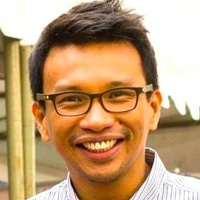
You've heard it before – in speeches, commentaries, and talk shows.
"If you are born poor it's not your mistake, but if you die poor it's your mistake." It's a quote often attributed to Bill Gates himself, the self-made man who, with the wealth of his business empire, is now helping the world through his philanthropic work.
Such feat should inspire all of us.
The only problem is that while meant to inspire, this quote is used by some to talk about themselves and their achievements. They often begin with the hardships they encountered in life. Millennials call this humble-bragging.
But there's another big problem here.
How I wish poverty were a choice for one-fifth of the population who fall below the poverty threshold. But it is not. Poverty is beyond one's choice.
Structural roots of poverty
My fellow faculty in my department, Dr Leland De La Cruz, once explained to his students the structural causes of poverty. He does not remember the lesson anymore but for some reason I still do. It was for my class when I was his undergraduate student in development theory. He rephrased the old saying about poverty: "Give a man and fish a you feed him for a day. Teach a man to fish and you feed him for a lifetime. But what if he were swept aside by big fishing vessels?"
We can learn a thing or two from this rephrased adage. These lessons unpack for us how unsophisticated blaming the poor is.
First, the poverty of other people is often a result of self-serving interests on the part of the powerful. Businesses – big and small alike – take advantage of surplus labor to cheapen their costs of operation. The endgame is to maximize profit at the expense of the ordinary worker, many of whom are impoverished to begin with.
Such, of course, is the intentional logic of capitalism. This logic is what Karl Marx referred to when he described capital as "dead labor, which, vampire-like, lives only by sucking living labor, and lives the more, the more labor it sucks."
Travesty then is the generosity of corporate owners toward each other when they fail to raise the wages of their people. Travesty is the failure to recognize workers as human beings with dignity.
Second, people's life chances are generally shaped from the time they are born.
This idea is different from fate as a divine mandate. Life-chances, for sociologists, refer to the opportunities people could access based on their socio-economic background.
Opportunities are already structured given the quality of life of one's parents: the kind of schools children could get into, their chance at making it to university, and then the job that would redeem the entire family from poverty afterwards. Include here too the nutrition one receives at childhood.
These limited life-chances are so palpable that the enduring narrative of contestants in various TV shows is about how they want to get their families out of poverty. Joining Tawag ng Tanghalan or The Voice, if successful, bypasses their limitations.
Third, some interventions do not systematically address the state of the poor.
We think education is the great equalizer, for example. Parents strive hard to give their children the gift of education.

The state recognizes too that it needs to have a highly educated population to keep the engines of growth running. CHED has identified that some of its priority courses, for example, are agricultural economics, petroleum engineering, multimedia, and teacher education. These courses anticipate the emerging needs of industries in the country.
The main caveat though is that education is an expensive feat. The obvious intervention is to make it cheaper or even free, even tertiary education. That is most noble, no doubt.
But the ones who make it to universities around the country tend to come from capable families. One big reason why students drop out of school is not only the expensive fees. It's the complete package that makes education prohibitive: uniform, books, projects, board and lodging, and transportation.
If these concerns are not addressed systematically, the ones who would benefit from the free fees are those who already have the means to begin with.
Remove the barriers
The challenge for the state and the development field is to remove these barriers. At one level it is about empowering communities to speak louder and fight harder so their concerns are heard. That's why efforts at fostering participatory governance are important.
But at another level it is also about challenging institutions to recognize these barriers.
These barriers are what people forget when they hold the poor solely accountable for their poverty, like in the case of Kadamay's homelessness.
Many have argued that what they are doing is illegal.
But one thing is clear. They are simply fighting for the right to lead better lives – with a roof over the head for starters.
That's an indication that nobody wants to be poor.
In contrast to accusations hurled at them, the poor are most likely the most hardworking people around. Think of our garbage collectors, janitors, tricycle drivers, and ice cream vendors. If they even attempted a day with these folks, the bourgeois would simply melt in the sun.
We who are privileged need to be considerate. It is irresponsible to blame the vulnerable for their mishaps in life.
That is because nobody wants to die poor. – Rappler.com
Jayeel Serrano Cornelio, PhD is the Director of the Development Studies Program, Ateneo de Manila University. He is most emotional whenever he teaches the sociology of development - just ask his students. Follow him on twitter @jayeel_cornelio.